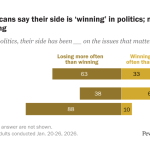July 28, 2025
Black and Latino Americans have a combined spending power of $6 trillion
A new report shows that the combined purchasing power of Black and Latino consumers is too great for companies to ignore diversity, equity and inclusion (DEI) efforts. Black and Latino Americans, who make up more than 30% of the U.S. population, have a combined spending power of $6 trillion, according to the National Urban League. For perspective, their spending power exceeds that of most countries, except the United States and China.
The study comes as U.S. companies abandon their commitments to DEI policies following pressure from the Trump administration. The NAACP maintains a list of companies that have either eliminated or scaled back their DEI initiatives. Many of these initiatives were created in the aftermath of the police killing of George Floyd. The list encourages Black consumers to spend their money where DEI still matters.
Brown-Forman, the parent company of Jack Daniels, pulled out from participating in the Human Rights Campaign’s Corporate Equality Index. Leaders said the “world has evolved, our business has changed, and the legal and external landscape has shifted dramatically.” Lowe’s announced that it would review its programs following the Supreme Court’s ruling on affirmative action. Walmart, the world’s largest retailer, announced that it would not be renewing its five-year commitment to an equity racial center. McDonald’s, Amazon, and Meta, along with the retailer Target, all pulled back on their diversity practices.
As a result, companies that backtracked are losing to companies that stood firm in their commitments. As BLACK ENTERPRISE previously reported, Target saw a 7% decrease in first-quarter sales. Meanwhile, when comparing year-to-year visits, Target saw a decline of nearly 5 million shoppers during a four-week period that ended on February 9. Costco, the big-box store corporation, saw an increase of 7.7 million visits.
While there has been political pressure to drop DEI policies, Black and Brown consumers prove that prioritizing people is profitable. Failing to do so could hurt businesses’ bottom line in the long run, according to the National Urban League.
RELATED CONTENT: Black Farmers Say New Anti-DEI Rule From USDA Means ‘Less Food For The Community’











